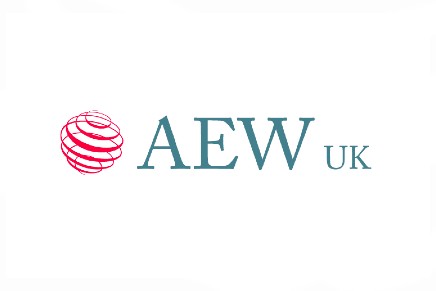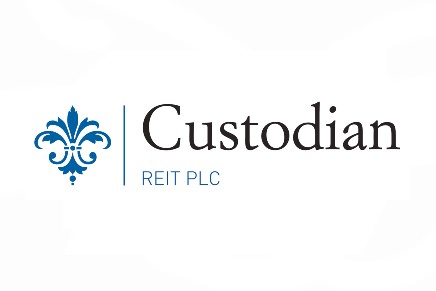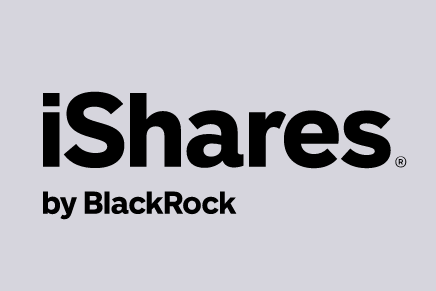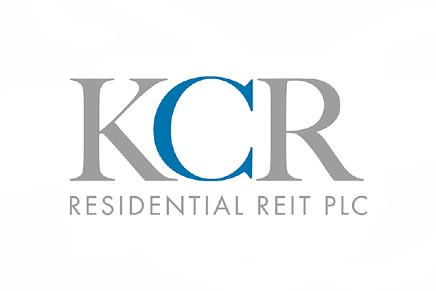Investing in a Real Estate Investment Trust (REIT) could be a good way to access the property market without the huge, upfront costs that can come with buying real estate directly.
Read through my guide to learn about some of the best UK REITs to buy now.
Also consider: My comprehensive guide to REITs
Read my top 10 list of real estate investment trust to consider adding to your investment portfolio.
Please remember: this list is not a personal recommendation and does not constitute financial advice. Do not buy these REIT investments solely based on what you read in this article. These picks do not constitute personal recommendations or financial advice.
10 REITS to buy in September 2025
Operating in the industrial sector of the real estate market, the AEW UK REIT could be worth considering if you plan to target industry properties.
Industrial properties make up around 55% of its portfolio, while it blends office and retail buildings to form the remaining section of its holdings.
AEW mainly operates by pursuing properties with short unexpired leases, with its average being four years. This is done to then raise the rates of rent to provide an income.
The company confirmed its plans to pay an annual dividend of 8 pence in 2022, translating to a 7.1% dividend yield.
As of the market opening on 24 November 2022, one share in AEW UK REIT was 98 pence.
Source: The Motley Fool
Buy this REIT at:
- Hargreaves Lansdown – Fees from 0.45%
- Interactive Investor – Get a Free trade every month
If you are interested in investing in a UK REIT with a highly diversified portfolio, the Custodian REIT could be an option for you to consider.
Custodian’s assets are diversified in regard to both their geography and property type – it holds assets all across the country while owning properties relevant to a variety of different sectors.
Some of the types of property in Custodian’s portfolio include:
- Industrial
- Retail warehouses
- Office blocks
- High street
This could have helped prevent a more considerable downturn in its share price, as it fell 7% in the initial nine months of 2022 – less than other REITs.
Recently, Custodian acquired another UK-based REIT, Drum. Drum had possession of 10 properties with 79 tenants, generating a contractual annual rent roll of £3.3 million. This type of expansion could be of interest to you if you are pursuing potential growth in your investment strategy.
Custodian, as of 18 November 2022, had an annual contractual rental roll of £40.5 million and offered shareholders a dividend yield of 8.1%.
As of 24 November 2022, when markets opened, the price of one share of the Custodian REIT was 93 pence.
Source: Admiral Markets
Buy this REIT at:
- Hargreaves Lansdown – Fees from 0.45%
- Interactive Investor – Get a Free trade every month
The Ediston Property Investment Company specialises in commercial properties, with a specific focus on retail property, such as shopping parks.
While shopping outlets, such as retail parks, suffered with the removal of in-person business during the Covid-19 pandemic, they could be an area of the economy poised to rebound as customers return to stores.
As well as this, with “click and collect” methods starting to become more popular among shoppers, the sector could see a revival in the near future.
This comes as analysts from the Motley Fool argue that threats from waning consumer activity at retail parks may already be priced into the low prices of commercial REITs.
Indeed, the Ediston Property Investment Company operates with a price-to-earnings growth (PEG) of 0.3 – an indication some analysts may use to determine whether a stock is over or undervalued.
The company’s 8.3% dividend yield may also attract you if you seek to generate income through your investments.
When markets opened on 24 November 2022, one unit of the Ediston Property Investment Company REIT was worth 66 pence.
Source: The Motley Fool
Buy this REIT at:
- Hargreaves Lansdown – Fees from 0.45%
- Interactive Investor – Get a Free trade every month
The iShares UK property ETF is a fund that tracks the performance of an index of UK-listed real estate companies and REITs, and is one of the few UK REIT exchange-traded funds (ETFs).
Some of its constituents include:
- British Land
- Land Securities Group
- Segro
This iShares ETF could be worth considering if you aim to get broad exposure to the UK real estate market and REIT stocks in general. This is because, rather than investing in individual real estate companies, an ETF effectively spreads your investment across all constituents of the fund.
The real estate market is vast, with many sectors within it. Pursuing an investment into property could take you in a number of directions – commercial, residential, or land to name a few. So, if you don’t have a specific sector of the real market you wish to target, this iShares ETF could be worth considering to gain broad exposure.
The ETF pays a 1.77% dividend yield each quarter and, as of 24 November 2022, one unit in the iShares UK Property UCITS ETF was worth £4.70 when markets opened.
Source: BuyShares
Buy this REIT at:
- Hargreaves Lansdown – Fees from 0.45%
- Interactive Investor – Get a Free trade every month
With a growing population alongside a nationwide shortage of rental homes in the UK, KCR Residential could be well-poised to soak up some of the growing demand for residential properties.
The trust was founded in 2014 with a sharp focus on private rental homes.
The UK’s apparent shortage of rental properties, combined with a lack of new-builds, could result in the rate of rent for rental properties to continue rising.
This could be beneficial to the business model used by KCR – it targets private rental homes in London and the south of England, more generally. These regions are home to many affluent areas within them which could – if rental prices do continue to rise – be more likely to keep up with increases in rental costs.
In addition to this, KCR plans to build new apartments catering to the over-55 age group, which could provide a new income stream for the company.
As of 21 November 2022, one unit of the KCR Residential REIT was worth £1.40 when markets opened.
Source: The Motley Fool
Buy this REIT at:
- Hargreaves Lansdown – Fees from 0.45%
- Interactive Investor – Get a Free trade every month
Operating as the largest Real Estate Investment Trust in the country, Landsec was founded as a company in 1944, so it has a lot of experience. It then became a REIT when the trusts were introduced in 2007.
Using figures from the London Stock Exchange, Landsec has a market capitalisation (market cap) of £4.7 billion, which shows its impressive size as a company.
Landsec has a diversified property portfolio that spans the retail, leisure, and workspace sectors of the real estate industry. In total, these areas of the property market comprise 24 million square feet in Landsec’s portfolio.
Around 65% of its holdings are in London-based assets, and it recently acquired the famous MediaCityUK, with plans for further development in the area.
For its shareholders, Landsec pays a 7.2% dividend yield which analysts from Moneyweek see the potential for growth in over the coming years.
When markets opened on 24 November 2022, the share price of Landsec was £6.29.
Source: Moneyweek
Buy this REIT at:
- Hargreaves Lansdown – Fees from 0.45%
- Interactive Investor – Get a Free trade every month
Please note
The value of your investments (and any income from them) can go down as well as up and you may not get back the full amount you invested. Past performance is not a reliable indicator of future performance. Investments should be considered over the longer term and should fit in with your overall attitude to risk and financial circumstances.
What is a REIT?
The term REIT is an abbreviation of “Real Estate Investment Trust”.
Most REITs are normally individual companies, although they can be group enterprises, that invest in the real estate market.
There are REITs to cover almost all areas of the property market – from social housing and residential property to industrial facilities and even mortgage REITs.
A lot of REITs were previously listed property groups before converting to REIT status in 2007 when the government passed new legislation that made this a possibility. For some investors, it could provide the ideal alternative investment market to regular stocks and shares.
REITs usually generate income by renting or leasing the properties they own. However, it’s also possible for them to make money by owning property on someone else’s behalf, or by financing other types of property investments.
They can be a useful way for retail investors to gain exposure to the real estate market and all its sectors, as REITs can often provide an affordable way to gain exposure to property investment.
For some, REITs are the only realistic way to make real estate investments.
What are the tax benefits of REITs?
REITs are known for their unique tax treatment, which is important for prospective real estate investors to consider before investing.
Firstly, the trusts themselves pay very little in taxes because, as part of their legal status as a REIT, they are obliged to pass on at least 90% of their taxable income to shareholders. This is normally done through dividends.
In fact, REITs are exempt from Corporation Tax on the rental income and sale of investment property assets, in addition to the sale of shares in property investment companies.
However, this usually results in the investors picking up the tab for the tax implications.
REIT investors are charged for their share of the rental income they receive from the REIT. As such, the property income of a shareholder is subject to Corporation Tax, or Income Tax.
You may also be subject to Capital Gains Tax (CGT) when you come to dispose of your REIT investment.
Are UK REITs a good investment?
Whether you consider REITs to be a good investment, or not, is ultimately down to your personal circumstances as an investor.
When working out your investment goals, you should consider incorporating realistic achievements that don’t expose you to excessive risk.
This may depend on your own risk tolerance, or how much value you are willing to lose before you liquidate your investment. Some things to consider as a part of this are your regular financial commitments and whether you have ample cash to continue paying these.
Having an emergency cash reserve could be worth considering. On the other hand, you should consider avoiding investing more than you can afford to lose.
Property investing can expose you to different types of risk than other investment products that could be unique to its market. This could make any disturbances difficult to detect as the real estate market is often not strongly correlated to the stock market.
It’s important to remember that all investments could result in you losing money rapidly.
If, however, you are keen to gain exposure to the real estate market, REIT investments could offer a method of doing so with fewer upfront costs than physical property investment.
As such, retail investor accounts may find it easier to invest in REITs, giving them the opportunity to generate a diversified investment portfolio.
If you’re still unsure whether REITs are a suitable investment for you, speak to an independent financial adviser.
Best UK REITs to Buy Now FAQs
Are REITs a safe investment?
No, REITs are not a safe investment on the basis that no investment should be considered plainly “safe”.
There are risks involved with all types of investment and some may have dangers unique to their respective market.
Is a REIT the same as owning property?
The value of your investments (and any income from them) can go down as well as up and you may not get back the full amount you invested. Past performance is not a reliable indicator of future performance. Investments should be considered over the longer term and should fit in with your overall attitude to risk and financial circumstances.






